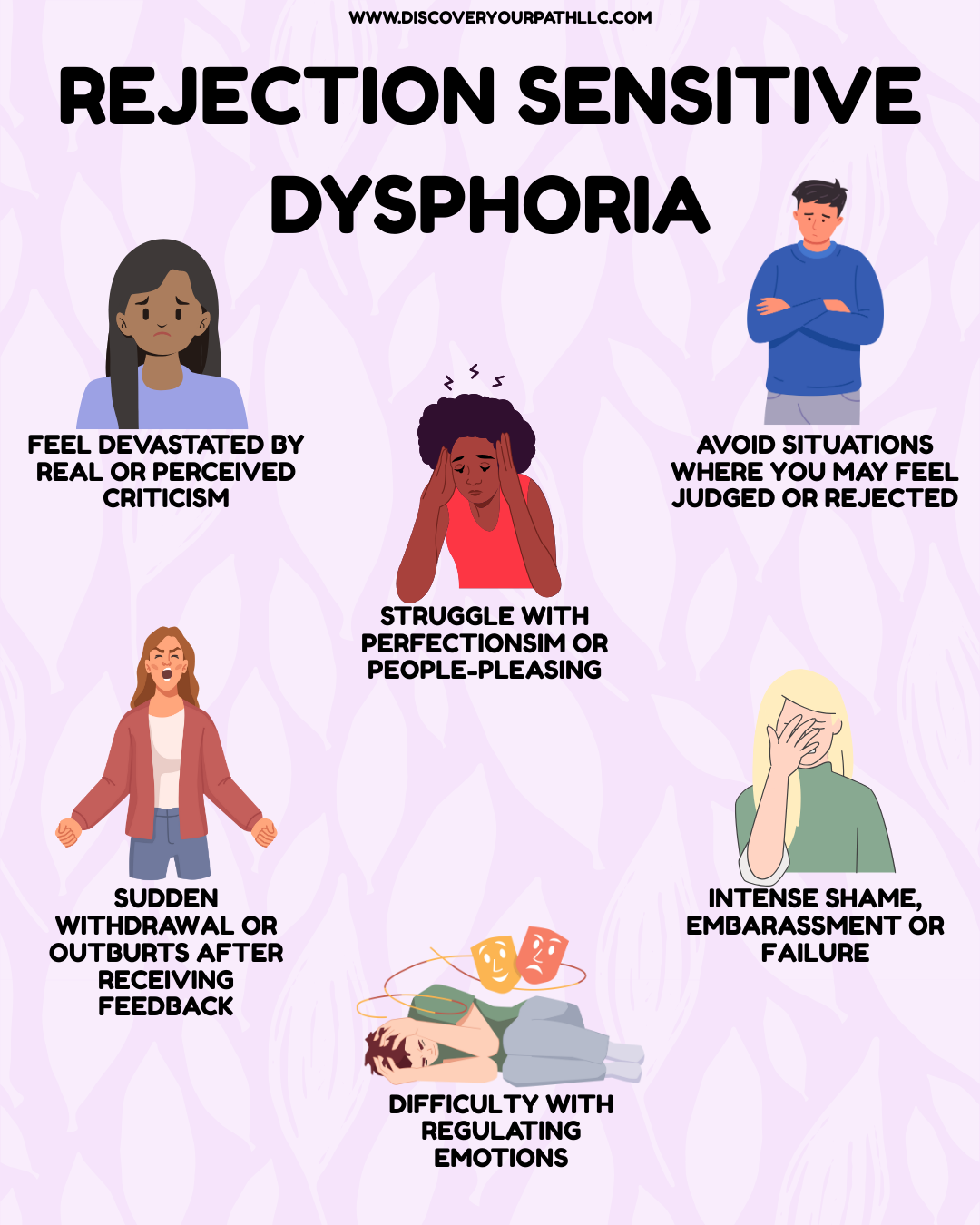What is RSD ADHD?
Living with ADHD (Attention-Deficit/Hyperactivity Disorder) is already a complex experience—but for many, there's an added layer that’s less talked about but equally impactful: Rejection Sensitive Dysphoria (RSD). If you or someone you love has ADHD and feels extreme emotional pain at the mere thought of rejection or criticism, RSD might be at play.
What Is RSD?
Rejection Sensitive Dysphoria is a condition characterized by extreme emotional sensitivity and pain triggered by the perception (not always the reality) of rejection, criticism, or failure. The word dysphoria means “difficult to bear,” and for those experiencing RSD, these emotional responses are not just uncomfortable—they’re intense, overwhelming, and often debilitating.
RSD isn’t currently a formal diagnosis in the DSM-5, but it's widely recognized by clinicians and researchers who specialize in ADHD. It’s believed to affect a significant portion of people with ADHD, possibly due to differences in emotional regulation and how the ADHD brain processes social and emotional cues.
How Does RSD Show Up?
People with RSD may:
Feel devastated by real or perceived criticism.
Avoid situations where they might be judged or rejected.
Overreact emotionally to minor setbacks or misunderstandings.
Withdraw socially or experience intense anxiety in relationships.
Struggle with perfectionism or people-pleasing behaviors to avoid disapproval.
Often, people with RSD are told they are "too sensitive" or "overreacting," which only deepens feelings of shame and self-doubt. Internally, they may cycle through self-criticism, sadness, or even rage—all from what might appear externally as a small trigger.
The Connection to ADHD
ADHD affects executive function—skills like impulse control, emotional regulation, and processing speed. Because of this, emotional experiences in individuals with ADHD can be heightened, fast-moving, and hard to manage. When rejection or criticism enters the picture, the ADHD brain might light up with an intense response before logic has a chance to intervene.
It’s not weakness. It’s neurology.
Managing RSD Symptoms
The good news is, RSD can be managed, and with the right tools, individuals can regain control of their emotional responses and live with more confidence and peace.
Here’s how:
1. Understand It’s Real
Just knowing that RSD is a legitimate experience can be a powerful first step. It validates that your emotions aren’t “too much”—they’re just wired differently. Learning more about RSD can reduce shame and promote self-compassion.
2. Therapy (Especially ADHD-Informed Therapy)
Working with a therapist who understands ADHD and emotional dysregulation can help identify RSD patterns and reframe them. Techniques such as Cognitive Behavioral Therapy (CBT), Internal Family Systems (IFS), and somatic approaches can help reduce the intensity of emotional reactions.
3. Medication
Some ADHD medications (like stimulants or non-stimulants) may help manage emotional regulation. Additionally, some doctors prescribe medications such as alpha-agonists (e.g., guanfacine or clonidine) specifically to reduce RSD symptoms. Medication is not for everyone, but it can be life-changing for some.
4. Practice Emotional Regulation Tools
Name the feeling: Instead of reacting, pause and name what you're feeling.
Breathe and ground yourself: Deep breathing, grounding exercises, and mindfulness can help reduce emotional overwhelm.
Delay response: If you’re triggered, give yourself time before replying to an email or text, or having a conversation.
5. Build Self-Worth from Within
People with RSD often tie their worth to others’ approval. Learning to value yourself internally—through affirmations, accomplishments, values-based goals, and support networks—helps buffer against rejection and criticism.
6. Set Boundaries and Communicate Needs
Let trusted people in your life know that you’re working on emotional sensitivity and may need space or kindness during vulnerable moments. Healthy relationships thrive on honest communication.
✦✦✦
RSD isn’t a flaw—it’s part of a neurological profile that processes emotional input differently. While it can be painful and isolating, understanding and managing RSD can transform that pain into empowerment.
If you recognize yourself in these words, you’re not alone. You’re not broken. And there is hope.
Need Support?
If you suspect RSD is affecting your daily life, consider reaching out to an ADHD-informed therapist or mental health professional. Healing begins with understanding, and you deserve to live with emotional clarity and confidence.
